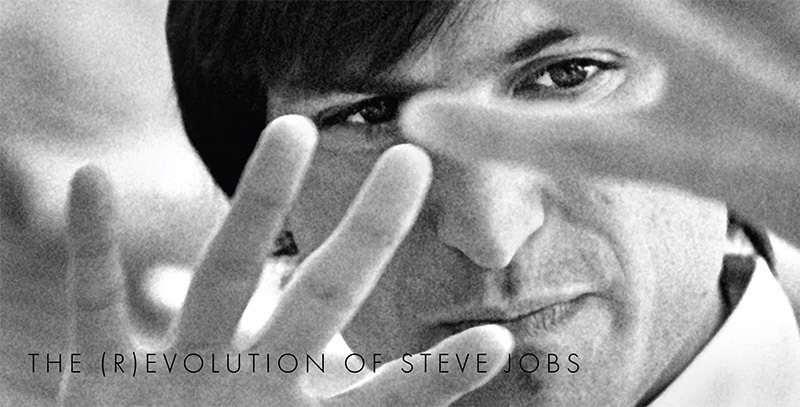Almost two years after the Santa Fe Opera commissioned "The (R)evolution of Steve Jobs," the narrative, music and rehearsals are complete and the production is set to open this Saturday as part of a limited six-show run.
Showtime and ticketing information for "Steve Jobs" was recently posted to the Santa Fe Opera website, along with a brief explainer detailing the opera's inspiration.
With a composition from Mason Bates accompanied by librettist Mark Campbell, the production aims to tackle Jobs' life and times as Apple's cofounder, tech guru and public figure. The commission was first announced in 2015.
Throughout the course of 19 scenes, beginning with the launch of iPhone in 2007, the opera navigates the transformative experiences of Jobs' life, from his days at Reed College to his time with spiritual advisor Kobun Chino Otogawa to the launch of the Apple I.
As can be expected, personal relationships appear to feature prominently in the production. Scene synopses and a cast list show interactions with Steve "Woz" Wozniak, former girlfriend Chrisann Brennan, wife Laurene Powell Jobs and father Paul Jobs. In true opera fashion, Otogawa's ghost makes multiple appearances.
The story itself weaves back and forth between decades, a technique reminiscent of flashbacks in movie making.
"The libretto for 'Steve Jobs' has a very non-linear narrative," Campbell said. "We create a story where he is confronting his own mortality [and] decides to look at a few places in his past."
As for music, Bates said he often looks to exotic forms in creating operatic compositions, and "Steve Jobs" provides an opportunity to capitalize on those themes. Bates, playing off Jobs' role as the man who revolutionized communications, offers a unique score filled with electronic sounds.
"I think this can really be taken to its full fruition," Bates said. "Where every character has very distinct sound worlds, whether it be the inner world of Steve Jobs which is quicksilver, acoustic guitar-picking electronica, to 'Maurosianic' lyrical harmonies of Laurene Powell Jobs, his wife, to the kind of diffuse, electro-acoustic sound world of Kobun, Steve Jobs' spiritual advisor. What happens when those worlds collide?"
A sampling of the music can be heard on Santa Fe Opera's Soundcloud page.
"The (R)evolution of Steve Jobs" opens on Sat., July 22 with a showing at 8:30 p.m., to be followed by another performance on Wed., July 26th. The opera will play for an additional four shows in August. Ticket prices range from $114 to $310 and can be purchased online from the Santa Fe Opera website.
 Mikey Campbell
Mikey Campbell







-m.jpg)






 Marko Zivkovic
Marko Zivkovic
 Christine McKee
Christine McKee
 Andrew Orr
Andrew Orr
 Andrew O'Hara
Andrew O'Hara
 William Gallagher
William Gallagher

 Mike Wuerthele
Mike Wuerthele
 Bon Adamson
Bon Adamson




-m.jpg)



17 Comments
2 movies (or 3), documentaries, operas... what's next? Musicals? Choose-your-adventure-book ("sell Pixar, or continue to invest", "get bought by Apple, or continue with NeXT")? Video games? TV series? The Animated series?
Does the term "rest in peace" mean nothing to these guys?
There are many people who relate that they went into careers in science, medicine, etc. because of growing up watching classic Star Trek episodes. This is reportedly a great source of pride for the family of that show's creator and many of its surviving cast members.
Nowadays, we see men in their mid-to-late twenties trying to imitate their hero based solely on the distorted characterizations that they have seen in books and shows --even going so far as to experiment with LSD (thank you Walter Isaacson), all the while plowing through other people's money trying to produce apps and websites that will "change the world".
It may be too late for Apple to set the record straight (with its own heavily promoted historical features that keep Steve in the context of Apple/NeXT) and we may see malignment of the entire industry as one run on snake-oil disasters like Snap, Uber and thousands more on their way.
Then again, who would go see a corporate opera about Ken (except Steve) --maybe if they have Kyrre do the score for Steve's?
It doesn't seem like there's enough info here to really tell if it's worthwhile. Statistically speaking, it's not likely. No one can seem to wrap their heads around the dynamism and dichotomies that made Steve Jobs who he was, so they try to find a simple answer in the form of some sort of emotionally driven motivation. For example, I was very much looking forward to the Sorkin movie, but it seemed too laughably bad from the pre press and previews; sorkins laugably simplistic way to conceptualize Jobs was as a control freak. None of the books or movies I'm familiar with (aside from Becoming Steve Jobs), seems to accept that behind all the complexities there was a pretty simple core, which Steve even explicitly repeated over and over. To me, it seems fairly clear that his primary motivations in life, overall, were 1) making great products, and 2) doing so in such a way that the wold would be a better place. Everything else was a distant second. (I'm excluding family and friends in this since I don't have a strong sense of that, although I do think I remember that he said his family was actually his first priority). I've never met him, so of course I could be off, but I feel like what I just said was closer than what almost any other movies and books have said. If anyone feels I'm Right or wrong about any of this, I'd love to hear it.